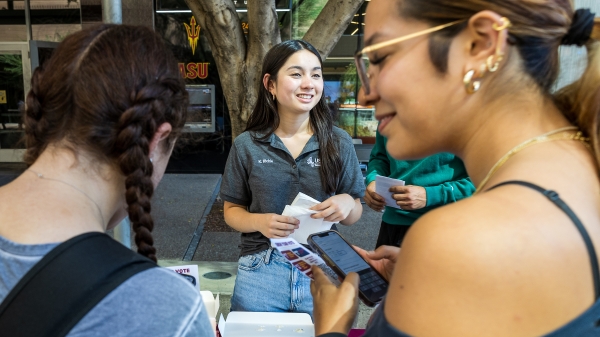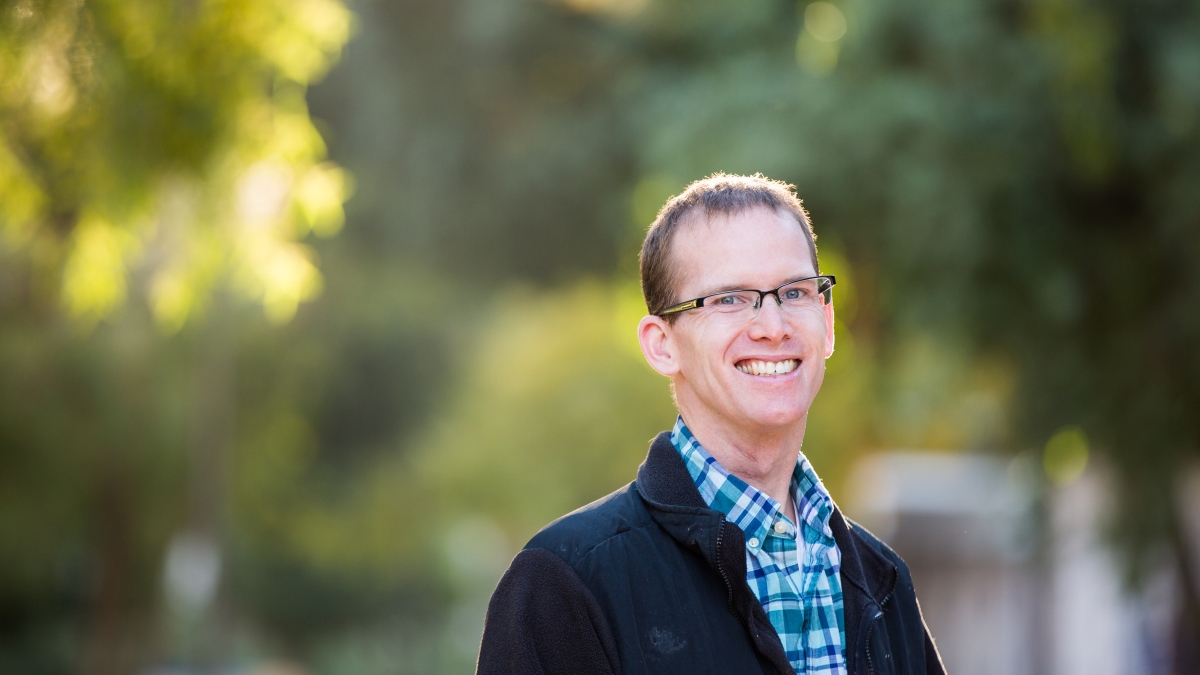Editor's note: This is part of a series highlighting new faculty members at Arizona State University. Find a complete listing of new 2015-2016 faculty here.
Words can save lives, and a communications professor at Arizona State University is finding out just how successful a crosscultural program is at keeping kids safe.
Jonathan Pettigrew, an assistant professor in the Hugh Downs SchoolThe Hugh Downs School of Human Communication is a unit of ASU's College of Liberal Arts and Sciences. of Human Communication, came to ASU in the fall semester. His project was already under way.
Pettigrew won a grant in 2014 to develop a version of the “keepin’ it REAL” substance-abuse curriculum — which originated at ASU — for youths in Nicaragua.
Keepin’ it REAL teaches young people practical ways to avoid drugs and alcohol. The REAL stands for “refuse, explain, avoid and leave.” Students learn communication and decision-making skills that they then practice through role playing. Keepin’ it REAL has been replacing the lecture-style DARE drug-avoidance program at many schools across the nationKeepin’ it REAL was named a “model program” by the U.S. Department of Health and Human Services, with research proving that it’s effective..
Keepin’ it REAL originated in the 1990s and was further developed at Penn State University, where Pettigrew earned his doctorate. He then was a project coordinator for a year.
Pettigrew was teaching at the University of Tennessee when he decided to incorporate a trip to Nicaragua as part of an ethnography course he was teaching. A friend of his was running a non-governmental organization in Nicaragua.
After touring the country and meeting with law-enforcement officials, they pitched a culturally adapted anti-drug program. The U.S. Department of State asked him to add a violence-prevention aspect and awarded him $400,000. Starting in March, seventh-graders in Nicaragua learned a version of the keepin’ it REAL program and eighth-graders were taught a version of the “Fourth R” relationship-building curriculum.
“We interviewed the students to hear about their experiences and in which situations they encounter drugs and violence,” Pettigrew said. “And we created scripts and prototypical situations.”
The researchers found similarities between American and Nicaraguan adolescents.
“From the first wave of data (from Nicaragua), we see that about 20 percent of eighth-graders have used alcohol in the last 30 days, which is about on par with U.S. students at that age,” Pettigrew said.
One difference, Pettigrew said, is that saying “no” is typically sufficient for the Nicaraguan youths to avoid a tricky situation.
“In the States, ‘just say no’ usually isn't skilled enough for resistance,” he said.
An important part of keepin’ it REAL is cultural relevance. So Pettigrew and the team had older Nicaraguan students create the videos that went with each lesson, helping to write the scripts and then acting and filming each segment.
“It’s not North Americans telling kids ‘don't do drugs’ but Nicaraguan peers who are demonstrating how to resist drug offers,” he said.
“For example, one of the offers (in the video) occurs at a quinceañera, with mixed ages and drinking open to youth and adults, which matched the reality in the Nicaraguan culture.”
The program reached 1,500 students in 25 schools, with about 600 participating in the interviews. Pettigrew and his partner will now begin sorting through the data to see whether the program had an impact.
The project was quasi-experimental because there was no control group of students who did not get the lessons.
“We were trying to reach as many kids as possible, which is the mission of the program,” he said.
At ASU, Pettigrew teaches a class on family communication, a topic he finds fascinating. He said he has always been drawn to studying communication
“I like to see how people interact. The sperm and the egg combine and the first thing that zygote does is send a signal and communicate with the mother to start to prepare for implantation.
“So communication begins at the very beginning.”
More Local, national and global affairs

Thunderbird at ASU, AUK student appointed as Ukraine’s deputy minister of education and science
Nadiia Kuzmychova, a student in the Master of Leadership and Management (MLM) program at Thunderbird School of Global Management at Arizona State University and the American University…

ASU creates pathways to public service careers for military students
The School of Public Affairs at Arizona State University is making careers in public service easier to access for military students.Next year, the school will start holding graduate courses on site…

Minting community leaders and stellar citizens: ASU’s Public Service Academy approaches 10-year milestone
Airports that are easier to navigate.Health care that is simple to access.Helping underrepresented youth reach college.These are realities that alumni of Arizona State University’s Public Service…
